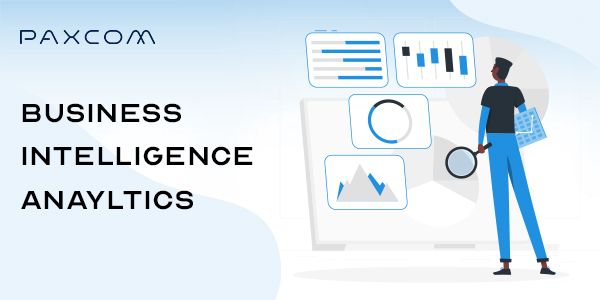Software which is extensively used by Business Users is “Business Intelligence Analytics” as it provides ease of use of dashboards from home as well as workplace.
In every company be it big or small , there is a constant need to improve on tools for data visualization. Most firms have traditional Business Intelligence platforms like SAP BusinessObjects or IBM Cognos, but they also the realize the fact that these platforms are unable to provide innovative and timely insights to business users due to non flexibility of data architecture, poor usability and substantial increase in time and costs. As a result , many business users have turned to alternative tools to help them perform data analysis and visualization.This is a major catalyst for change and brings Business Intelligence Analytics in great demand.
Core business activity is decision making that requires facts and insights. Slow, rigid systems are no longer useful and could be fatal for Sales, Marketing and other Business users. Competitive pressure and new sources of data are generating new set of requirements. Users want the ability to answer their questions quickly and easily.The goal is to enable business users along the Discover, Decide and Do lifecycle:
- Discover new insights by rapidly accessing and interrogating data .
- Decide on best actions by publishing dashboards, collaborating with others, discussing insights and inducing others through an interactive application of the data .
- Do the best at each decision point with confidence, based on the survey that develops when new data is accumulated and explored with multiple associations and different points of view.on best actions by publishing dashboards, collaborating with others, discussing insights and persuading others through data presented in an interactive application.
Data discovery and ease-of-use is one of the biggest challenge faced by business users. They want to focus on visualization and aggregation . They need the ability to quickly change filters and query conditions interactively.
The challenge for the application and other teams in every corporation is to deliver new easy-to-use platforms to their business partners faster and consistently while maintaining control and governance.To meet both the requirements, best firms are creating Data Mining and Centers of Excellence to ensure that the investments on people, process and technology are not copied and addressed in a manner that maximizes ROI and enhances IT-Business partnership.Following Five qualities are needed to enable easier consumption of data :
- Discovery— By integrating analysis, queries and graphics, it allows people to create dashboards and powerful visualizations that can lead to new discoveries.The human mind can process the information, discern trends and identify patterns in a better way when presented with information in a visual format.
- Self Service— The ease and simpler usage of next generation visualization tools like Qliktech, Tableau Software or Spotfire which gives people the power to analyze,access, and share data without any technical assistance from the specialists.
- Mobility – Decision makers at all levels in an organization need readily available data. All sort of mobile devices help to make business data ubiquitous.
- Speed— Enable people to drive value from their data at an accelerated pace.
- Linkage — To be able to connect directly to a broad category of data sources, enterprise users can do their work without undertaking complex and time-consuming data movement and transformation.
The traditional BI tools were developed for professionals, like statisticians, and are deployed and driven by IT departments in an hierarchical approach. A typical business user wants easy to use data mining and visualization software. They neither possess the authority nor have the skills to modify the underlying data cube and therefore they have to engage their IT departments to configure the analysis for producing the requested information between each decision cycle. Hence, business users often do not have the access to critical data in required time and may miss some important insights along with the opportunities.Enterprises are gradually adopting analytical tools to fix these gaps. With in-memory data appliances and queries , a variety of capabilities are possible. However, technology is only a part of the solution, there is still a need of structure, people and mindset to drive value.














